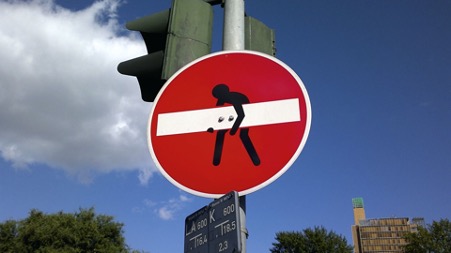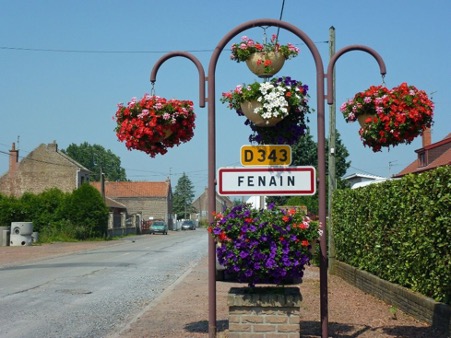You have already planned your entire trip to France. From climbing the Eiffel Tower, buying a stylish beret and eating a croissant to visiting Marseille in the country's famous wine region. Or maybe you want to take a road trip to the Côte d'Azur and go swimming in the gorgeous waters there. These are all excellent ideas, and to be able to do them all, the best solution is to rent a car and go! Read on to find out all about the unusual road signs in France that you might come across along the wa
Here we will go over the following topics about road signs in France.
- Driving regulations
- Road signs in France to keep in mind
- Unusual road signs in France
- France specific signs
- Road markings
- Toll roads and tunnels
- Taking the car outside of France
Driving regulations
General regulations for car hire in France
To rent a car in France, the age limit is 21 to 25 years, depending on the car rental agency. Many of the agencies either charge a fee for young driver fee if you are under this age, or do not allow you to rent a car at all. The reason for this is that they consider drivers of this age as an additional risk due to lack of experience. Don't be surprised if they also insist that you take out additional insurance because of this! We know it's great to be young, but it can also bring added responsibility and complications. There is also a senior driver limit, usually at 70 years, with rental companies charging a senior driver fee if you are over 65.
Speed limits in France
Born to be wild is a great name for a song, but we don't recommend applying that to your driving. At least if you want to avoid a speeding ticket. The speed limit in cities is 50 km/h (31 mph), on main roads its 80 km/h (50 mph), on motorways without tolls the limit is 110 km/h (68 mph) and on toll motorways its 130 km/h (80 mph).
In case you accidentally press on the gas pedal a bit too much, and manage to get yourself a speeding ticket as an unexpected souvenir, the car rental agency will pay the ticket at first and then send you the fine and the administrative costs for payment after you return the car.

International driving license
If you are a citizen of the European Union, you do not need to have an international driving license. The same is true if you are from the US. If you are from a country not mentioned an international driving license is highly recommended and in case that your original license is not written in Latin letters (examples: Russia, China, Middle East) it is mandatory to have it. Please note that an international driver's license alone is not enough, as you must present it together with your original, valid driving license, issued by your country of residence.
Road signs in France to keep in mind
Road signs are an important part of any traffic situation, as they describe how drivers should behave on the road and which regulations they should keep in mind.
Unusual road signs in France
An unusual road sign that you might encounter is a square one, with a blue border and black centre and a large yellow letter T in the middle. That means there's a toll booth ahead for drivers with season tickets.
Another road sign you may not be familiar with is a green/brown square with a spiral in the middle. It means that there is a nature reserve ahead of you.
You could also see road signs that are in the shape of a black and white rectangle, a road with a silhouette of a church in the background and a large letter e in the middle with a marker on it. It means village étape (a tiered village in French), which marks a small village that is next to a highway and has a certain infrastructure in place for travellers. This includes a population of under 5000 people, a classified hotel, a tourist information centre, and a number of "basic" shops such as grocery, butcher and baker).
In cities, you may come across street signs that look like normal signs marking a no parking zone, but what does the number 16.31 on it mean? Does it mean that parking is prohibited after 4:31 pm every day? If that's what you're thinking, you're close, but not quite right. In fact, it means that parking is not allowed in the zone with this sign from the 16th of the month until the 31st.

France specific signs
Sometimes you will see road signs that don't have a graphical presentation of what they mean and only have a French phrase written. Examples of these kinds of signs are:
Sometimes you will see road signs that have no graphic representation of their meaning and only have a French phrase written on them. Examples of these types of signs are:
A sign with the name of a town and "Prochaine sortie" written underneath, meaning "next exit".
Or you may see road signs that state the speed limit and another sign underneath that says, Rappel. This simply means a reminder so drivers know the speed limit is still in effect and they need to be careful.
A sign that says "allumez vos feux" means you have entered a zone where headlights must always be on. A sign saying "fin d'allumage des feux" means that this zone has ended and you can turn on your headlights (note that at night or in fog/rain, you should still keep your headlights on to increase visibility).
On a highway, you will see a red and white circle with the words "Halte Peage" written on it, warning you that there will be a toll service up ahead.
Sometimes you will see a road sign that looks like the STOP sign in colour and shape but has "Arret" written on it. Don't worry, you won't be arrested, it's just the equivalent of the word stop in French.
Road markings
When you arrive at a crossroads, you may see a few road signs in different colours. For ease of reference, all road signs in France are colour-marked so they are easier for you to spot them while driving:
- The blue road signs indicate highways.
- The green ones show where the major roads that lead to bigger cities are. This also means international European roads that go through multiple countries.
- If you see a yellow one it means that there is a temporary road there, usually as a detour if the main road is not in use at the moment.
- White road sign indicates local roads.

Toll roads and tunnels
If you are planning to car hire in France with your rent a car, you will probably use the highway a lot as well. If you do, you need to keep in mind that there is a toll fee for using the highways. They do not use vignettes but instead, have toll gates set up along the road and you pay according to the length of time spent on the highway as well as the section of the road that you go through. There are road signs marking payable highways at the drive-on as well as road signs notifying you of the toll gate while already on the highway itself.
The French government has an official website where you can calculate how much you will need to pay for the toll, based on where you will drive. That is great if you are travelling on a budget and want to know in advance all the costs that you will have during the trip, or if you just want to avoid unnecessary surprises.
The payment of the toll can be done in several ways, as you can pay it with cash or a credit card. In case you want to pay with cash they accept Euro, British Pound, Swiss franc or American dollar. If you instead prefer to use a credit card, you can use Visa, Mastercard, and Cofinoga.
Taking the car outside of France
If you are planning to take your rented car to England, that is allowed with certain rental agencies, but you will need to request border crossing permission from them in advance as they need to prepare the documentation for you by the time you collect the car. In that case, be ready to also pay something extra for the administration expenses, also called Border Crossing Fee in most cases. With England preparing to leave European Union, the regulations for car hire will also be changing.
Now to actually reach England, you will need to go through the Eurotunnel. It is a 50 km long tunnel, running between Calais in France and Folkestone in England. You can also use a ferry, but this is the preferred method for most as it's a lot faster and less complicated. Depending on how long you are planning to stay abroad, the price of the ticket for the tunnel will also change. If you are only going for 1-2 days the fee will be £30,00 (34€), if you go for up to 5 days it will be £66,00 (76€) and if you are going for longer than that the ticket each way will cost £85,00 (98€).
What you also might like...
